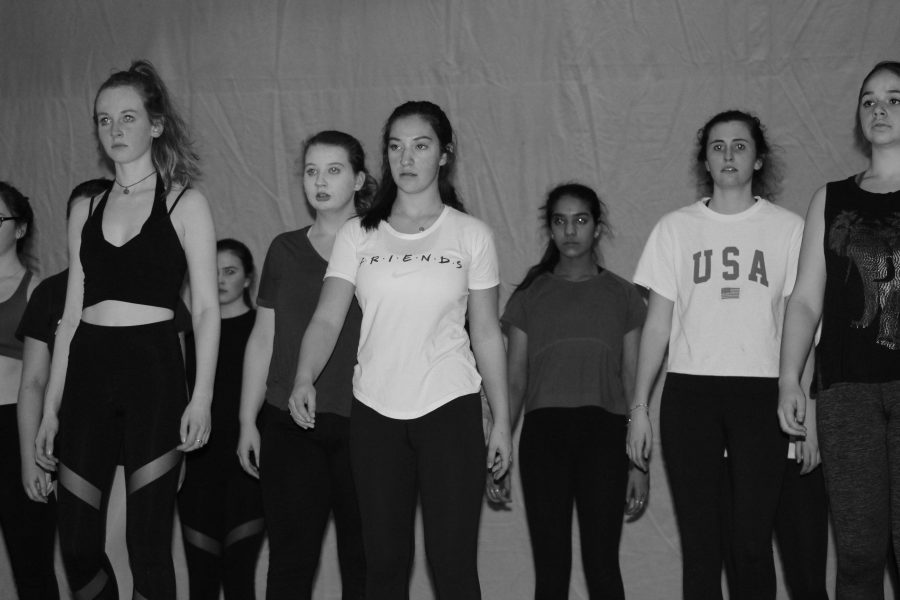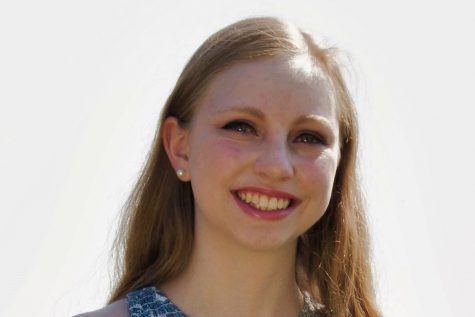Philosopher John Locke claimed in the late 17th century that everyone is born into the world with the same blank slate, and they can only process their level in the universe through sensory experiences. Thus, intrinsic abilities do not exist, and the outside world is the determining factor for the inside self. Aside from today’s political and ethical disagreements, everyone can agree that chaos is prevalent in the world.
Richard Kim, director of the Walpole High School Dance Company (Dance Co), uses Locke’s Tabula Rasa philosophy to accent themes in this year’s production on April 6 and 7 at 7:30 p.m.
“The show is a reminder to all of us that regardless of how you think, feel, how you were brought up, etc., we are all the same,” Kim said. “If you think about it, we’re all spiritual beings having a human experience. And the fact that some people are so adamant about their beliefs, ideals, even within their own labels they have for themselves, none of that is in your DNA… it is all conditioned. And sometimes those conditions could or may be wrong and that’s a hard thing for people to admit or accept regardless of what history has taught us.”
Kim treats the company just as seriously as the work that he does with contemporary ballet companies from around the country, such as the MET opera dancers. In total, Dance Co has choreographed 129 original dances.
This year, Dance Co has five choreographers, four captains (seniors Kelly Drogan and Lauren Capozzi, and juniors Katerina Konstas and Erin Parquette) and two assistant directors (Alyssa Tempesta and Laura Barajas) who lead the 8 seniors, 14 juniors, 6 sophomores and 8 freshmen in the group. In the weeks leading up to the show, they practice more than three times a week as a group.
“Dance Company is definitely a team effort. We all rely on each other greatly to have a smooth season,” Drogan said. “Dedication and commitment are very important to the company, so everyone has a very important role in the making of the show.”
Every production has the constants: ten contemporary dances with voiceovers in between; however, their goal is to grow each year.
“This year’s production is similar in the way that it brings the viewer to a different place in every dance. I used to watch the shows, and they always transported me into where the dances were,” Konstas said. “It is different this year because the theme of the show is unique to the rest of the shows.”
By highlighting themes of the world and inspiring young girls, Dance Co has a mission to impact the community.
“I remember freshman year I was convinced I was the worst person in the company, but [Kim] gave me a solo, and that was the first time in my life I ever felt that I was genuinely good at something,” Parquette said. “Mr. Kim always gives us little speeches of motivation, and the things he says will literally make me cry when I go home because they instill so much confidence in me. He genuinely believes in us and our capabilities.”
In addition to changing the lives of the dancers themselves, they perform contemporary dances to get a reaction out of the audience. Using the ideas of Tabula Rasa, Dance Co will shape the audience to understand the universe through their experience of watching the show.
“I don’t really plan out the dances anymore; I let things happen more organically and put my instincts to the test. We are entertaining the audience but also educating them on one of the arts that is least taught in public schools today. It’s interesting to me that dance—which is somewhat gender-ized—is one of the only ‘arts’ that is not taught in schools, and one that the general public know the least amount about,” Kim said.










